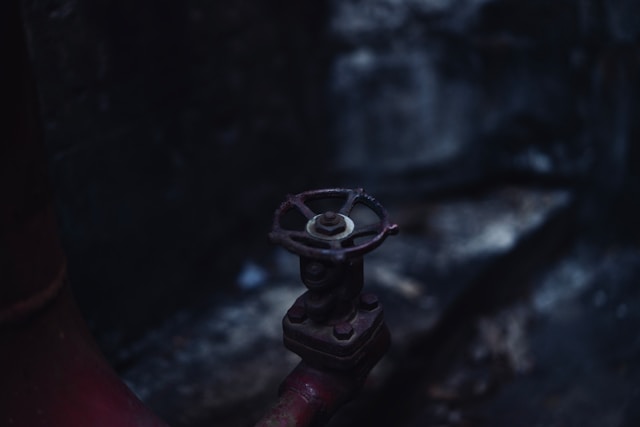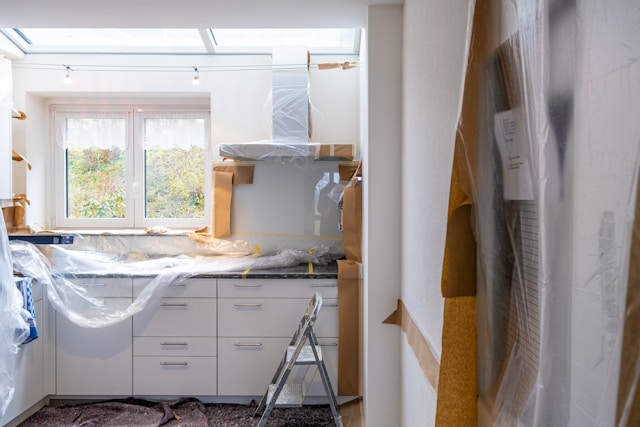Key Takeaways:
- Common problems and inefficiencies caused by hard water in homes.
- Health impacts related to using hard water for daily hygiene and consumption.
- Cost-related advantages of investing in a water softener system.
- Eco-friendly practices and technological advances in water softening.
Table of Contents:
- Introduction to Water Softening
- The Impact of Hard Water on Home Appliances and Plumbing
- Health Considerations With Hard Water
- Economic Benefits of Using a Water Softener
- Environmental Aspects of Water Softening
- Choosing the Right Water Softener for Your Well
- Installation and Maintenance Tips
- Common Misconceptions About Water Softeners
- The Role of Water Testing Before Installation
- Advancements in Water Softening Technology
Introduction to Water Softening
Hard water is a hidden adversary lurking within many of our homes, known for wreaking havoc on appliances and reducing the quality of our domestic water usage. Primarily sourced from groundwater, this mineral-laden water contributes to numerous inconveniences, from spotty dishware to stiff laundry. How does one combat these pervasive problems? The solution lies in adopting a reliable hard water treatment Tampa, which swaps out harmful ions for ones that won’t affect our day-to-day activities or the longevity of our home systems. It’s time to unpack the benefits of employing such systems and the significant differences they can make in our routine home experiences.
The Impact of Hard Water on Home Appliances and Plumbing
Imagine this: A hot shower turns lackluster as the water heater struggles against escalating mineral deposits, and the dishwasher leaves a residue of disappointment on your glassware. These are the telltale signs of hard water at work. Hard water’s calcium and magnesium content can also calcify in pipes, leading to decreased pressure and the potential for catastrophic blockage. The cost of descaling or replacing pipework and appliances goes beyond mere inconvenience, veering into a financial burden. Homeowners can proactively protect their investments by employing a water-softening solution and ensuring their appliances and plumbing operate efficiently for years.
Health Considerations With Hard Water
While drinking hard water is generally considered safe, it may have less tangible impacts on health and well-being. The high mineral content—beneficial in moderate amounts—can lead to external discomforts when bathing, such as dry skin and lifeless hair. Furthermore, the complex water effect is pronounced concerning personal hygiene; it impedes gathering personal care products, thereby reducing their effectiveness and potentially exacerbating skin conditions. Switching to softened water can enhance one’s quality of life by providing a more soothing domestic water experience.
Economic Benefits of Using a Water Softener
A lesser-known advantage of soft water is its financial implications. Water softeners can be seen as an economical purchase that delivers dividends over time. With softened water, the formation of limescale is heavily reduced, which means that pipes and appliances are less likely to suffer from the related damage and thus incur repair or replacement expenses. Moreover, soft water enhances the efficiency of soaps and detergents, requiring less product to achieve the desired cleaning effect. These cost reductions in household consumables are compounded over time, making water softeners not just a home maintenance choice but a savvy economic decision.
Environmental Aspects of Water Softening
Deliberating on the environmental footprint of water softeners is a reasonable concern for eco-conscious homeowners. It’s imperative to assess the immediate impact of their use and the broader environmental benefits. The indirect advantages include reduced reliance on chemical cleaning agents and heightened energy conservation owing to the improved efficiency of water-using appliances. These factors contribute to a softer ecological impact overall. Innovations in water softener technology aim to reduce the environmental toll further, fostering the development of more resource-efficient and less wasteful systems. Indeed, ongoing advancements are refining the sustainability of water softeners, ensuring they play a part in eco-friendly household management.
Choosing the Right Water Softener for Your Well
Choosing an appropriate water softener is akin to tailoring a suit; it requires finesse and attention to detail. The market offers an array of systems, from ion exchange to salt-free models, each touting its benefits for specific situations. When evaluating softeners, consider the size of your household, the hardness of your water, and how much water is used daily. A system that is too small will become a point of frustration, necessitating frequent salt refills and regeneration cycles. Balance is critical in selecting a system that will reliably serve the needs of your home without exceeding what is necessary.
Installation and Maintenance Tips
Water softener installation stands at the intersection of plumbing and home improvement—a skill set not everyone possesses. Therefore, assessing whether a DIY installation is within your capabilities or a task better left to professionals is crucial. Installing a water softener involves intricate knowledge of your home’s plumbing system, and any mistakes could lead to leaks or ineffective softening. Once installed, regular maintenance, such as checking salt levels and cleaning the brine tank, is essential to maintain efficient operation. Vigilant upkeep ensures that the benefits of soft water continue without interruption.
Common Misconceptions About Water Softeners
Amidst the advantages, certain myths about water softeners persist. One common misconception is that soft water is unfairly accused of being unhealthy due to the introduction of sodium during the water softening process. While softeners add a small amount of sodium to the water during ion exchange, the levels are typically negligible and are often far less than in everyday foods. Another fallacy is the belief that softeners purify water; this is not their intended function. Water softeners are designed to eliminate hardness from water, not to filter out bacteria or chemical pollutants. Clearing up these misconceptions reveals the essential role water softeners play and the substantial benefits they provide without encroaching upon the realm of water purification systems.
The Role of Water Testing Before Installation
A thorough water test is the first step in ensuring prudent water-softening investment. This diagnostic will illuminate not only the level of hardness but will also detect other minerals and elements in your water supply. These insights provide the groundwork for informed decisions, leading to a customized water treatment plan for your home’s needs. With this knowledge, homeowners can confidently choose a water softener that is as efficient as practical, ultimately ensuring improved water quality and appliance durability.
Advancements in Water Softening Technology
Water treatment is experiencing a technological renaissance, with innovations that elevate water softeners’ efficiency and ecological harmony. The latest models boast more brilliant regeneration cycles, reducing salt and water usage. Programmable features and finer resin beads enhance the ion exchange, minimizing waste and optimizing regeneration. What lies on the horizon for residential water treatment is promising, as evidenced by the emergence of technologies that can revolutionize how we soften our water. Embracing these advancements can yield a future where household water systems are as environmentally friendly as they are functional.

 Keeping Your Hearth in Top Shape: The Value of Routine Fireplace Repair
Keeping Your Hearth in Top Shape: The Value of Routine Fireplace Repair  Septic Systems: Maintenance Tips for Homeowners
Septic Systems: Maintenance Tips for Homeowners  Timeless Elegance: A Guide to Buying Your First Antique Shelf Clock
Timeless Elegance: A Guide to Buying Your First Antique Shelf Clock  Fostering Tranquility: Infusing Personal Well-Being into Home Renovation Ventures
Fostering Tranquility: Infusing Personal Well-Being into Home Renovation Ventures 


